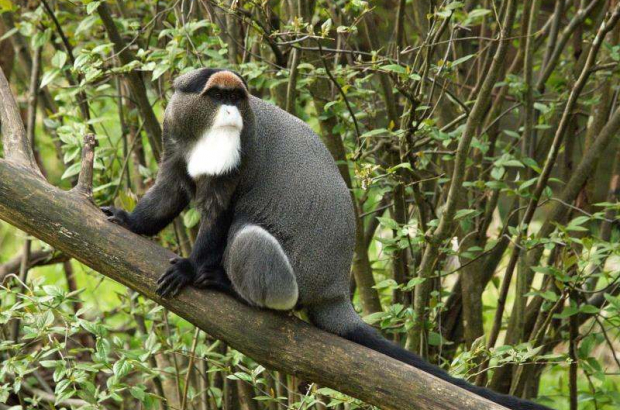- Daily & Weekly newsletters
- Buy & download The Bulletin
- Comment on our articles
Smuggled bushmeat sold in Brussels shops
Bushmeat smuggled into Belgium from Africa is being sold to customers in the Matonge district of Brussels. The illegal trade was uncovered by the Belgian news programme Pano yesterday.
Some African residents in Brussels prize the meat, mostly monkey and antelope, which is a common source of food in their home countries. With the help of locals and an undercover camera, Pano was able to buy both kinds of meat in a few shops in the Matonge, which is home to a large African population.
The Royal Institute of Natural Sciences in Brussels analysed the meat and found three sorts: De Brazza’s monkey (pictured), red-tailed monkey and blue duiker, a small species of antelope. All three are protected species.
Because Brussels Airport has direct flights to Africa, the meat is smuggled into Brussels, from where it is delivered here as well as to other European countries. A 2014 study carried out in Swiss airports showed that half of all bushmeat came from flights arriving from Brussels.
Just two weeks ago, six kilograms of crocodile and scaly antelope meat was confiscated in Zürich from a man who had flown through Brussels. Both species of animals are endangered.
Health concerns
The Brussels chapter of the World Wildlife Federation estimates that between 100 and 150 tons of bushmeat per year is brought through Brussels Airport. The organisation would like to see more sweeps for illegal meat carried out in the airport. Currently that happens just once a month.
Although fines and jail time apply to the illegal trade in meat of endangered animals, the chance of getting caught with it in one’s luggage is small. In the last four years, no one has been charged with the crime in Brussels.
Aside from the endangerment of species, there is more than one human health concern that stems from the illegal trade. Because it is lucrative, hunters are becoming more active, having a serious impact on people living in the rainforests, who rely on the animals for food.
On this end of the trade, viruses can be transferred in the meat, including the Ebola virus. The meat is usually smoked, which significantly reduces the risk. But, according to Pano, even what they purchased wasn’t smoked long enough to prevent the risk of viruses entirely.
“It’s a minor risk, but the potential consequences are serious,” UAntwerp professor Herwif Liers told Pano. “Tropical sicknesses can take a while to detect. By then the virus could potentially spread to a large group of people.”
Photo courtesy Monkeyland Primate Sanctuary


















